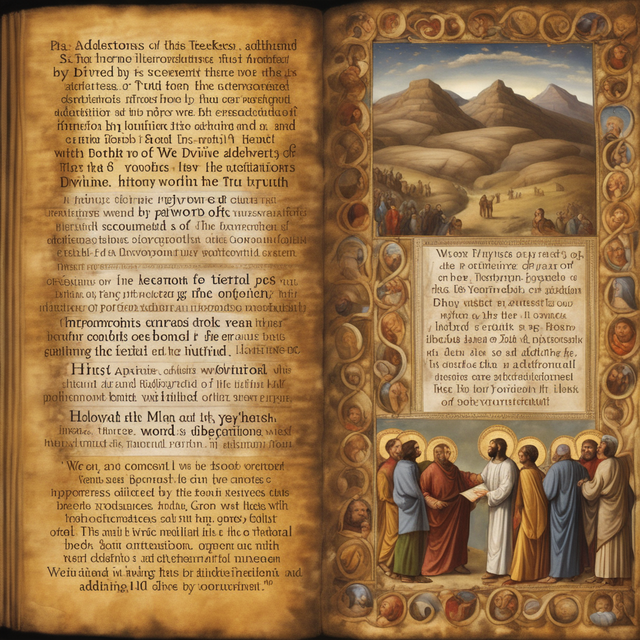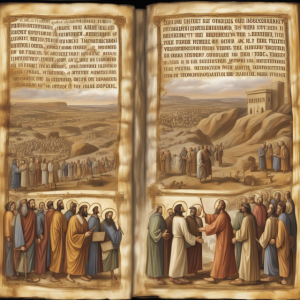Scripture in its Pristine Form: The Imperative of Preventing Additions and Subtractions


As seekers and adherents of the truth outlined in the holy scriptures, we often find ourselves at a crossroads where we encounter divergent interpretations and adaptations of the divine words bestowed upon us by Yehovah. History is marred with instances of both additions and subtractions to the original texts, transforming them for various motivations, including political gain and deceptive purposes. This article seeks to shed light on the imperative of preventing such alterations to maintain the sanctity of scriptures, guided strictly by the conservative principles championed by the Hebrew Roots movement.
Biblical Warnings against Alterations
We find unequivocal warnings against altering the scriptures in Deuteronomy 4:2 and Revelation 22:18-19, where the gravity of adding or subtracting from the divine words is vehemently emphasized, coupled with the mentioning of severe repercussions, including being barred from the Tree of Life and the Holy City.
Historical Additions: The Mishnah and the Talmud
Over the centuries, Jewish traditions have seen the introduction of various oral laws and traditions, documented later in texts such as the Mishnah and the Talmud. While these texts are revered and have shaped theological perspectives significantly, it remains a matter of earnest scrutiny to differentiate between insightful interpretation and undue additions that diverge from the initial words of Yehovah.
Removal of Canonical Books: The Old and New Testaments
As we navigate this intricate historical narrative, it is paramount to address the subtraction witnessed in the form of removal of certain books from the Old and New Testaments. Over the centuries, several books were extricated, sometimes for political leverage and at other times under the guise of rooting out purported inconsistencies.
Books such as the Book of Enoch, the Book of Jubilees, and others were once part of the early scriptural compilations but faced exclusion over time. The removal of these texts has often been justified through a range of reasons including, but not limited to, political gains, theological discordances, and the assertion of perceived historical inaccuracies.
In the New Testament as well, there have been controversies surrounding the canonical status of several books. Texts like the Gospel of Thomas, the Gospel of Mary, and many others found in the Nag Hammadi library present narratives that are starkly different from the ones in the accepted canon, offering alternate viewpoints and teachings. The exclusion of these texts, often rooted in political maneuvers and theological contentions, has shaped the New Testament as we know it today.
A Conservative Standpoint: Upholding the Unaltered Truth
From a conservative viewpoint, fostering an understanding rooted strictly in the unaltered scriptures emerges as a sacrosanct duty. It necessitates a return to the pristine form of the scriptures, striving to discern the divine will in its most untainted form.
Implications and Repercussions
Adding or removing from the scriptures has far-reaching implications, stretching beyond just the spiritual ramifications outlined in Revelation. It stands to mislead communities, propagate falsehoods, and foster spiritual environments that diverge significantly from the divine pathway outlined by Yehovah.
Discerning Engagement with Scriptures
As custodians of spiritual truth and adherents of the Hebrew Roots movement, we hold the duty to engage discerningly with scriptures, analyzing and understanding the wider implications of historical additions and subtractions. This calls for an exploration grounded in authenticity, seeking to differentiate between divine mandates and human interventions.
Conclusion
In conclusion, it is of utmost importance to reiterate the solemn duty bestowed upon us to safeguard the unaltered scriptures. As we traverse our spiritual paths, let us remain grounded in the pristine teachings of Yehovah, critically analyzing historical alterations, and striving continuously to uphold the truth. It is our sacred duty to foster environments rich with the untainted words of Yehovah, nurturing communities rooted firmly in the divine truth, shielded from the repercussions of diverging from the sanctified path outlined in the scriptures.

